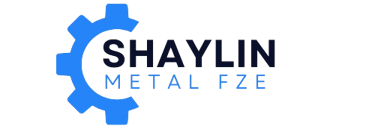Steel and the Dubai Market
Forging a Resilient Future
by: Abdul Muizz


Dubai, a city renowned for its architectural marvels and rapid urban development, stands as a testament to the pivotal role of steel in modern construction. From towering skyscrapers to expansive infrastructure projects, steel is the backbone of Dubai's growth. Let's delve into the current state of the steel market in Dubai, its key players, and the factors shaping its future.
Dubai's Steel Market Landscape
Dubai's steel market is integral to the broader UAE steel industry, which has witnessed significant growth over the years. As of 2024, the UAE's steel production capacity stands at approximately 4.6 million tons annually, with Emirates Steel Arkan commanding a substantial 60–65% share of the domestic market .
The steel market in Dubai is characterized by:
Diverse Product Range: Including rebars, wire rods, structural sections, and prefabricated steel components.
Robust Demand: Driven by ongoing construction and infrastructure projects.
Strategic Positioning: Dubai's strategic location facilitates trade and re-export activities, making it a regional hub for steel distribution.
Key Players in Dubai's Steel Market
Emirates Steel Arkan: As the UAE's largest steel producer, Emirates Steel Arkan plays a pivotal role in Dubai's steel market. In 2024, the company reported revenues of AED 8.3 billion, with its steel division contributing AED 7.6 billion .
Dubai Investments: Through its subsidiary, Emirates Building Systems, Dubai Investments is a significant player in the prefabricated steel and structural steel segments.
Union Iron & Steel Company: A leading manufacturer of steel products, catering to both domestic and international markets.
Market Dynamics and Trends
1. Infrastructure Boom
Dubai's ambitious projects, such as the expansion of Al Maktoum International Airport, the development of Dubai Creek Tower, and various metro and road networks, continue to drive steel demand. These projects require vast quantities of steel for reinforcement, structural frameworks, and prefabricated components.
2. Green Steel Initiatives
Emirates Steel Arkan has embarked on a collaboration with Masdar to produce steel using green hydrogen, aiming to reduce carbon emissions in line with the UAE's Net-Zero by 2050 initiative .
3. Market Volatility
Global economic factors, including fluctuations in raw material prices and geopolitical tensions, impact steel prices. For instance, between September 2024 and January 2025, Dubai steel prices surged by approximately 8.6%, rising from AED 2,456.25 to AED 2,668 per ton .
Challenges and Opportunities
While the steel market in Dubai is poised for growth, it faces challenges such as:
Raw Material Dependency: The UAE imports a significant portion of its steel, making it susceptible to global supply chain disruptions.
Environmental Concerns: The steel industry is energy-intensive, necessitating investments in sustainable practices.
However, these challenges present opportunities for:
Technological Innovations: Adoption of advanced manufacturing processes to enhance efficiency.
Sustainable Practices: Investment in green technologies to align with global environmental standards.
Conclusion
Dubai's steel market is at the crossroads of tradition and innovation. As the city continues to expand and evolve, the steel industry must adapt to meet the demands of modern construction while embracing sustainable practices. With key players like Emirates Steel Arkan leading the charge, Dubai is set to remain a global hub for steel production and trade.
SHAYLIN METAL FZE © 2025. All rights reserved.
Shaylin Metal FZE is a trusted name in industrial metal fabrication, delivering precision-crafted solutions with a commitment to quality, durability, and innovation. Based in the UAE, we specialize in custom metalwork for diverse industries.
Subscribe To Our Newsletter
WEBSITE DESIGNED BY:
